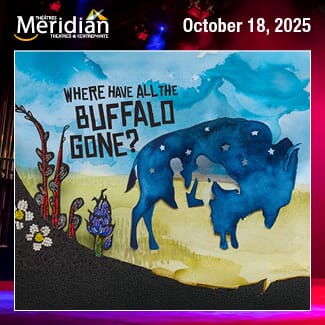IFFO’s closing night featured one of the most eclectic, challenging and moving works of the whole festival.
Spanish filmmaker Carlos Marqués-Marcet’s new film, They Will be Dust, follows Claudia, an ageing woman with an incurable brain tumour who seeks out medical assistance in dying (MAID) in Switzerland. Her husband Flavio, despite being perfectly healthy, intends to join her in death to spare himself the pain of going on alone.
If that sounds too dreary, you should also know that it’s a musical. The film makes relatively sparing but deeply memorable use of expressive musical numbers, some of which are a complete break from the film’s reality with characters bursting out in song, and some in which characters simply start dancing to the ethereal soundtrack.
Being almost entirely from Claudia’s perspective, these musical sequences could be understood as the fleeting remnants of her imagination as the tumour wears away at her cognitive function – Claudia was a renowned stage performer in her career, and perhaps this is the form her thoughts take at the end of her life. A less literal read might simply interpret them as a pure form of communication from Claudia to the audience that she is unable to replicate with her own family.
Either way, the unusual choice to incorporate musical elements into this bleak narrative elevates it significantly, purely demonstrating the utility of the musical form in cinematic storytelling. In contexts where characters have difficulty expressing themselves openly for whatever reason – in Claudia and Flavio’s case, the tortured family dynamics that slowly reveal themselves as they explain their decision to their children – the musical number highlights this repression by cutting through the film’s internal reality to act as the sole vehicle for true emotional expression.
These nonliteral, borderline surreal elements also help to create a slight emotional detachment from the narrative, which is certainly a positive in this case. Without the colour the music provides, this story of a sweet old couple facing death might have been unbearable to watch.
Also providing some much-needed levity are intermittent comedic elements, which fit the literal definition of ‘gallows humour.’ It is a testament to Marqués-Marcet’s command of tone that a film which elicited audible groans, sighs and mutterings in emotional moments also repeatedly caused the whole crowd to burst out laughing. Crucially, though, the musical and comedic elements are deployed sparingly enough to avoid detracting from the emotional punch.
They Will be Dust features excellent, deeply felt performances from its entire cast, but it is anchored by Ángela Molina and Alfredo Castro, who are transcendent as Claudia and Flavio. In what must be challengingly personal subject matter for two ageing performers, both thoughtfully express the complicated emotions that come with seeking out MAID.
The couple’s chemistry has an immediately endearing effect, as Molina and Castro effortlessly express an intimacy that could only come from a decades-long love. Claudia is very open with her emotions and has become prone to moments of confusion due to her condition, while Flavio is quite reserved and thoughtful, making his more overtly emotional moments all the more affecting. Molina and Castro sensitively express years upon years of emotional history between them from the very beginning, simply from their gazes and the tones of their voices.
As we follow Claudia and Flavio methodically through the MAID process, the actors perfectly capture the universal, somewhat surreal feeling of facing in reality something that had only existed as a blurry, abstract concept in the imagination. The film boldly grapples with the emotional and philosophical implications of MAID, for friends and families as well as recipients.
Another complicated emotion that is beautifully expressed here is one specific to old age – Claudia and, more specifically, Flavio, are making a decision that they understand to be self-centred, knowing they will not have to live to face the consequences. This is one of the primary dilemmas that the characters struggle with in the film, and it is a feeling Molina and Castro interpret as simultaneously liberating and emotionally taxing.
This is a story that will feel personal to everyone who sees it – viewers of all ages are certain to recognize either themselves or a loved one in the intricate characters of Claudia, Flavio or their children. But rather than simply playing on those emotions by cranking up the sadness and sentimentality, They Will be Dust is a mature examination of how this kind of situation is processed and understood by people on all sides of it, with all of the messiness that implies.
The Ottawa Art Gallery screened They Will be Dust on the final day of the International Film Festival of Ottawa, March 23. Keep an eye out on their website for next year’s lineup.
















